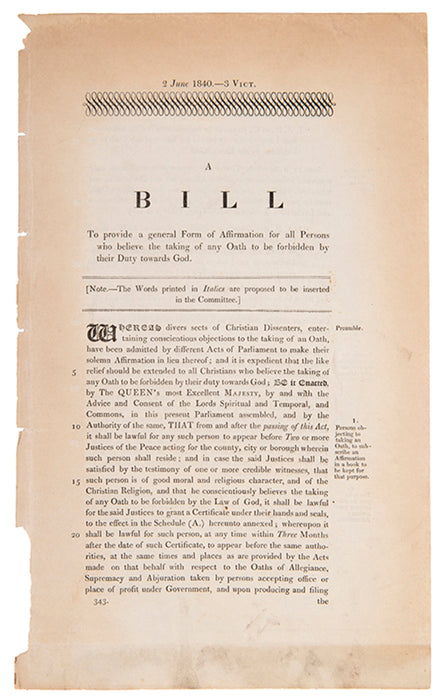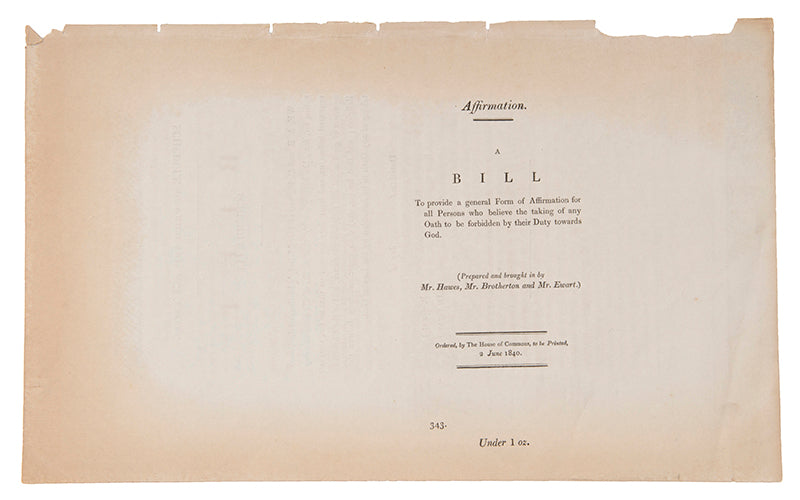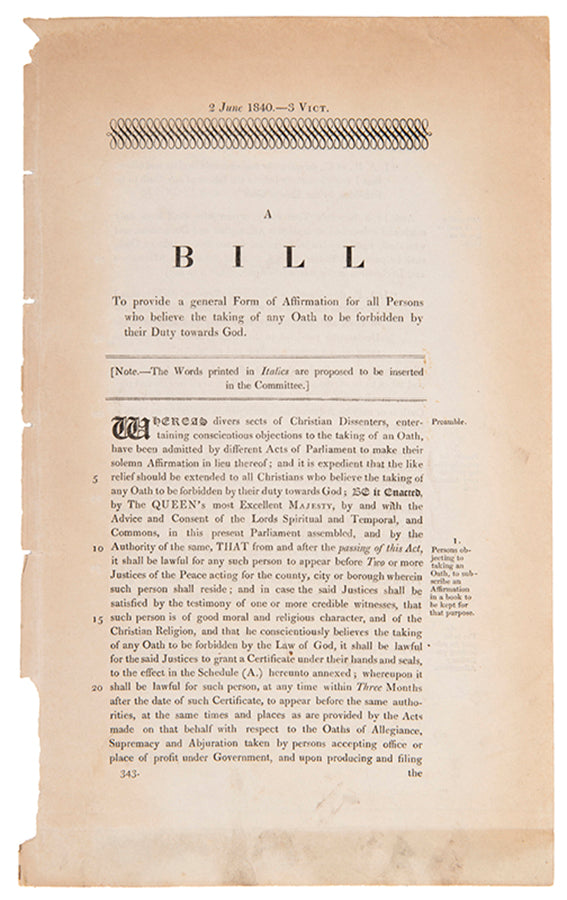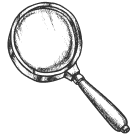
A Bill to provide a general Form of Affirmation for all Persons who believe the taking of any Oath to be forbidden by their Duty towards God.
London, [House of Commons], 2nd June 1840.
Oath-taking, and the double standard of truth it seemed to imply, had been a thorny issue in nonconformist politics since the late seventeenth century. An imperfect solution was realised in a 1695 act of Parliament which exempted Quakers from the legal requirement to swear religious oaths so long as they performed an affirmation that they were telling the truth instead. On successive occasions Parliament refused to bestow this exemption more generally, fearful that it would lead to procedural difficulties in the administration of 'public justice' (Hansard).
This bill was a limited attempt to extend the right to make an affirmation to 'all Christians who believe the taking of any Oath to be forbidden by their duty to God' (p.1). Importantly therefore, in the context of the Jewish emancipation movement, this bill would not enfranchise those non-Christians whose faith also prevented them from swearing the oath of allegiance required of all MPs to take-up their seats in the House of Commons. It was not until 1858 that the Jewish Relief Act permitted Jews to omit the words 'and I make this Declaration upon the true Faith of a Christian' from their oaths, and not until 1888 that the Oaths Act allowed all to affirm their allegiance to the Sovereign rather than swear this oath to God.
Folio (32.5 x 20 cm); unbound; 4 pp.
Cf. Hansard, 22 July 1840, vol. 55, 871.
Provenance
Delivery
We offer secure and express delivery on all local and international orders of rare books, maps and prints placed through this website.











